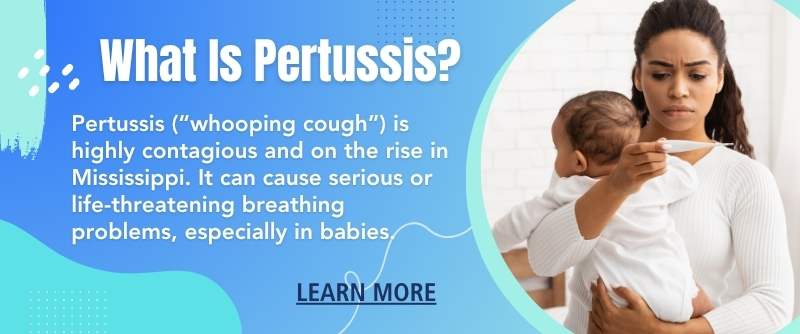
A healthy baby is no accident. You can increase your chance of having a healthy pregnancy by following good health habits, quitting smoking, and making sure that your diet includes the right amount of folic acid.
About half of all pregnancies are unplanned. If there's any chance you may become pregnant, you need to start these healthy habits to ensure the healthiest possible child.
ON THIS PAGE
Increase Your Chances for a Healthy Baby
Before Pregnancy
- Discuss your upcoming pregnancy with your health care provider.
- Treat medical conditions like diabetes, epilepsy, and high blood pressure, and continue to do so throughout your pregnancy.
- Watch your diet and your weight. Women should be within 15 pounds of their ideal weight before they become pregnant. Being overweight or underweight during pregnancy can lead to problems.
- Take a multivitamin that has folic acid in it every day.
- Women should get all needed vaccinations such as rubella and chicken pox before their pregnancy. All vaccines, including COVID 19, should be spaced two weeks apart and discussed with your medical provider.
During Pregnancy
- Get regular, moderate exercise. Exercise is good for you and your baby, as it can help reduce fatigue and speed recovery after birth. Exercise also promotes a sense of well-being and decreases the stress of pregnancy.
- Have regular medical check-ups. Talk to your health care provider about any medical problems you may be having.
- Eat a healthy, balanced diet. Learn more →
- Take a multivitamin that has folic acid in it every day.
- Get a seasonal flu shot and Tdap vaccination. Discuss these with your doctor or OB provider.
Remember: Check with your doctor before taking medication. Some prescription and over-the-counter drugs may be harmful to a developing baby.
Avoid:
- Avoid eating raw or undercooked meat.
- Avoid contact with raw meat and cat feces (both are sources of toxoplasmosis).
- Avoid all alcohol, tobacco, and street drugs.
- Avoid risky sexual practices. Sexually transmitted diseases such as syphilis, herpes, gonorrhea, chlamydia and HIV can harm your baby.

Folic Acid
A Necessary Nutrient for Proper Development
Folic acid is a B-vitamin that can reduce the risk of birth defects of the brain and spine. All women who could become pregnant should get 400 micrograms (400 mcg or 0.4 mg) of folic acid every day.

Count the Kicks
Track Your Baby's Health
Count the Kicks is a simple to use smartphone app for women in their third trimester. By taking a few minutes each day to track your baby's activity, you can spot possible problems before they become serious. It's a free app made in partnership with MSDH. Look for it in your App Store or Play Store.
Risks to Know
Smoking and Pregnancy

Cigarette smoking and second-hand smoke can lead to many problems, including low birth weight, miscarriage, and infant mortality.
If You Are a Non-Smoker
Avoid other people's smoke while you are pregnant and after the baby is born. If other people in your home smoke, they should quit. Studies show that regular exposure to secondhand smoke may harm a developing child.
If You Smoke
You and should quit or cut back as much as you can. Here are some resources that can help:
- Quit Smoking TodayHelp with quitting smoking from the Tobacco Quitline and other resources
- Personalized help new moms who want to quitOne-on-one assistance with quitting if you're raising a new child
Prevent Fetal Alcohol Syndrome
When a pregnant woman drinks alcohol, so does her unborn baby. Alcohol, even in the early stages of pregnancy, can cause Fetal Alcohol Syndrome. Fetal Alcohol Syndrome causes abnormal features, growth retardation, and lifelong learning and behavior problems in children.
Alcohol can damage a fetus at any stage of pregnancy – even before a woman knows she is pregnant.
All drinks containing alcohol can hurt an unborn baby. A standard 12-ounce can of beer has the same amount of alcohol as a four-ounce glass of wine or a one-ounce shot of straight liquor. There is no safe kind of alcohol for a pregnant woman.
Nearly half of all births in the United States are unplanned. Women who could become pregnant, even if they are not planning to do so, should not drink. If you are pregnant and drinking, stop.
- More information on Fetal Alcohol Syndrome from the CDC
- National Organization on Fetal Alcohol Syndrome
- Special help for pregnant women to control alcoholWe offer personalized help with controlling alcohol or other substances while you're pregnant or raising a new child
Toxoplasmosis: Avoid this Risk to Your Child
Toxoplasmosis is a bacterial infection spread in cat droppings.
You can be infected by Toxoplasma bacteria when you change a litterbox or handle soil outdoors where cats live without washing your hands. Pregnant women can pass infection to their developing baby, and put their child at risk of eye and brain problems later in life.
If you're pregnant, keep safe by avoiding used cat litter and by washing your hands immediately after contact with dirt or litterboxes. Regular handwashing is recommended for all pregnant women to reduce the risk of a wide range of infections.
 Mental Health Matters
Mental Health Matters
Pregnancy and childbirth can be a time of mood changes and mental challenges. The blues, feeling disconnected, or unusual sadness can come with motherhood. Understand these changes and know what to do about them to stay your best.
Having a Healthy Baby – On Time
Babies go through important steps of development during the last weeks of pregnancy. Waiting to deliver at full term – at least 39 weeks – ensures that your newborn has the best possible chance in life. Let your doctor know that waiting until full term is important to you unless it is medically necessary to deliver sooner.
We Help With Health Challenges
If you're pregnant and have health challenges such as a chronic illness like high blood pressure or diabetes, or you're a teen mom or a smoker, we offer free assistance to improve your health so that you can have a healthier baby. Learn more about the range of health issues we address, and who qualifies for our Healthy Mothers, Healthy Babies program.
Pregnancy Risk Assessment Monitoring Survey (PRAMS)
The Pregnancy Risk Assessment Monitoring Survey is a joint project between the Mississippi State Department of Health and the Centers for Disease Control and Prevention (CDC). The purpose is to find out why some babies are born healthy and others are not. To do this, we mail a survey to new mothers with questions about their pregnancies. The answers are confidential and will assist us in learning more about ways to improve the chances for mothers and babies in Mississippi. The data will also assist in planning for future health programs.
Learn More
MSDH Pregnancy Resources
- Preventing Birth Defects
- 39 Weeks for a Healthy BabyThe importance of waiting until full term to deliver
- 17P and Preterm Births
- Breastfeeding
- WIC Nutrition ProgramFree, healthy foods for mothers and children
- Child Care
- Safe Sleeping and SIDS
- Children's Health Programs
- MSDH Family Planning Program
Other Pregnancy Resources
- Pregnancy Informationfrom the American College of Obstetricians and Gynecologists
- Birth Defects Informationfrom the Centers for Disease Control and Prevention
- Folic Acid Topics (CDC)
- The National Birth Defects Prevention Network (NBDPN)
- Mom.MEA community of moms, by moms, supporting one another through the challenges of motherhood

Essential services for mothers and mothers-to-be.
The Mississippi Attorney General's Office brings you a complete resource for services you can use, from health care to adoption, education and jobs: MAMA — Mississippi Access to Maternal Assistance.
For more information about Maternal and Child Health Programs and the MCH Block Grant, call 1-800-721-7222.
Your input is important. We want to hear from you about maternal and child health needs, the MCH Block Grant, and programs in Mississippi. Take a moment to share your comments, ideas and concerns with us.
*Find the right program for you.
Find the free or low-cost services that you or your children may qualify for. Start now →

